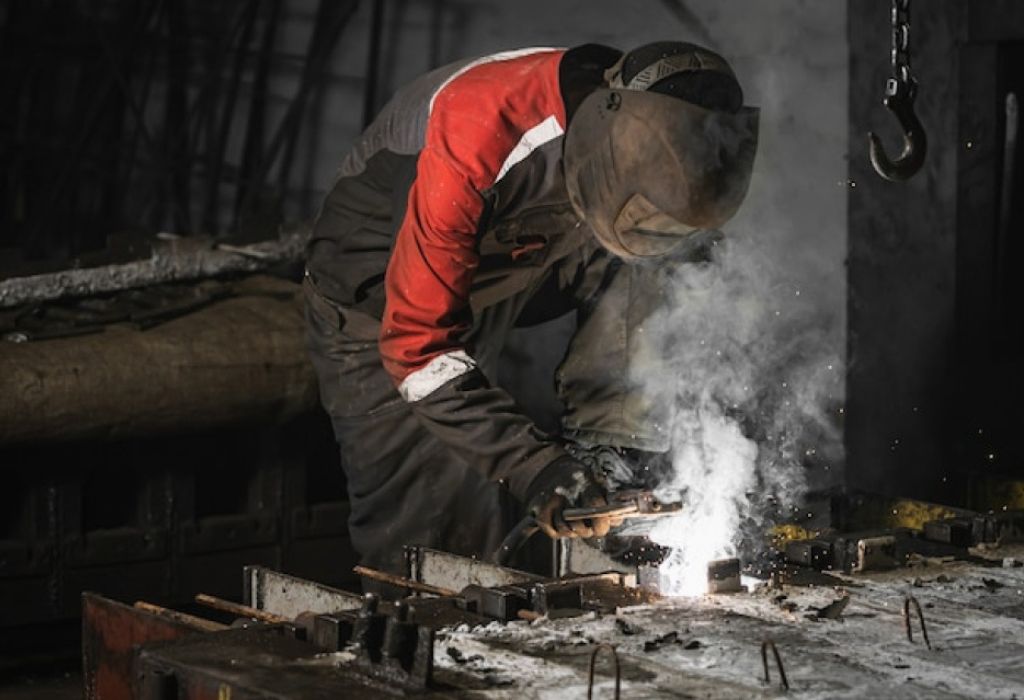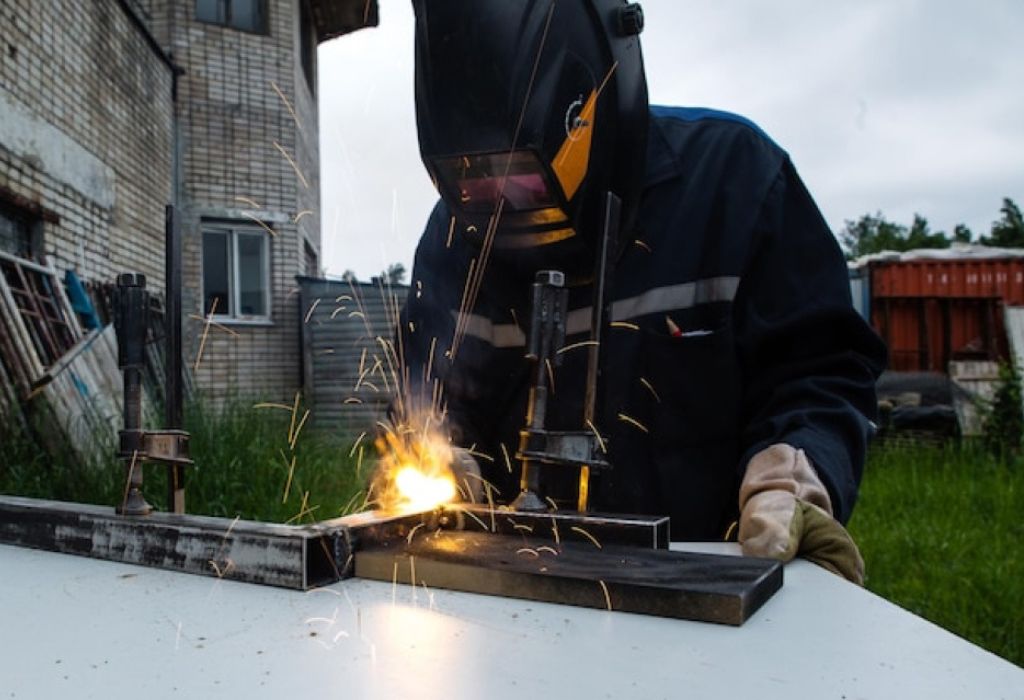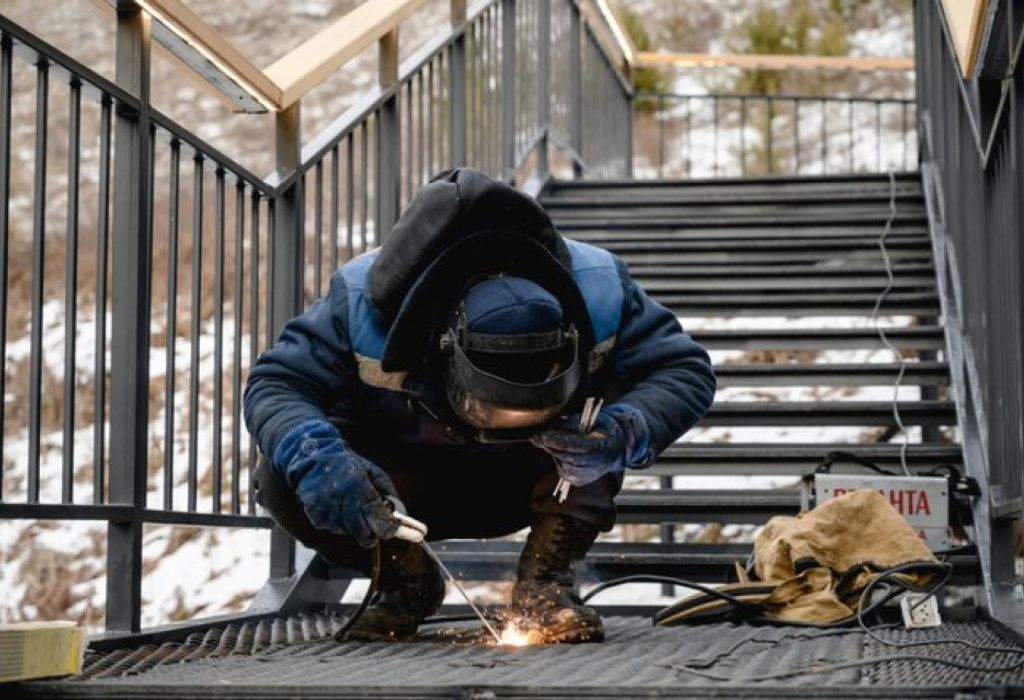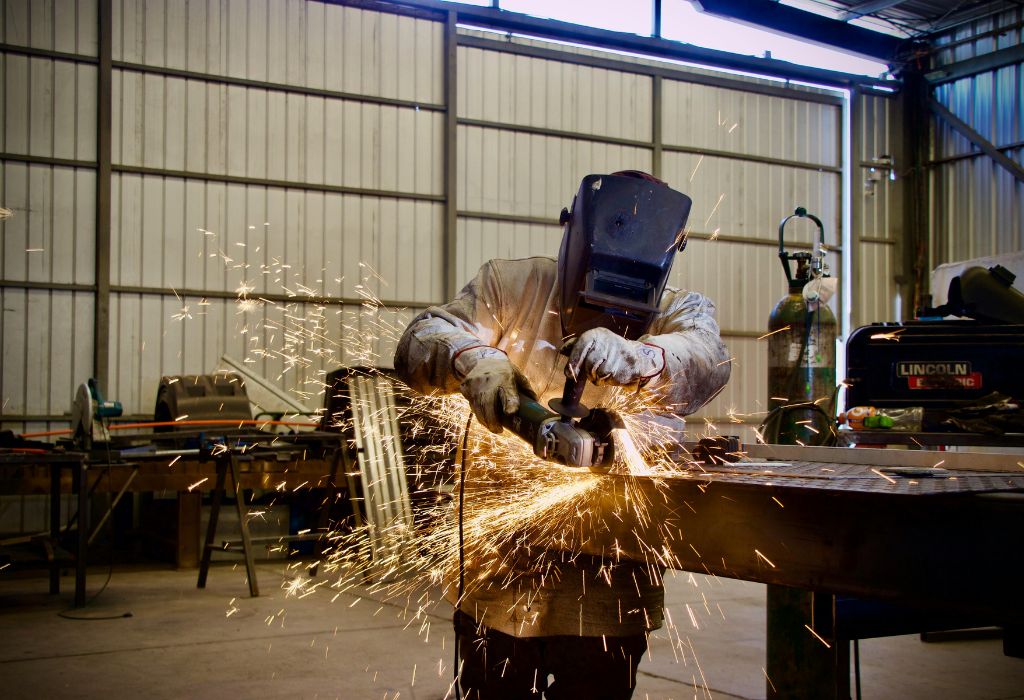A welding torch hisses as sparks fly in a dim workshop. For many seeking a second chance, that spark represents far more than fused metal—it represents a path to stability.
The question can a felon be a welder is asked in classrooms, reentry programs, and job centers across the U.S.
Welding is a performance-based trade where results matter more than lengthy résumés. Employers often judge candidates on skill tests and reliability rather than just their past.
This makes welding one of the most accessible career paths for those rebuilding their lives.
The opportunities are real. According to the U.S. Bureau of Labor Statistics, welders earn a median annual wage of $48,940 and new openings continue to rise each year (BLS).
Research also shows that stable employment reduces recidivism by up to 50%, proving trades like welding can change lives (Urban Institute).
But barriers exist. Some industries require background checks, security clearances, or certifications like the TWIC card for maritime jobs.
Knowing where restrictions apply—and how to present yourself as a skilled, reliable worker—makes the difference between rejection and opportunity.
This guide explains the truth about welding careers for people with records. From training programs and certifications to employer incentives and industries that say “yes,” you’ll discover how to enter the trade and build a career defined by skill, not your past.
Welding 101 for Justice-Impacted Candidates

Welding is the art and science of joining metals together using heat and pressure. It is an essential trade in industries like construction, shipbuilding, and energy. The field is diverse, with processes such as MIG, TIG, Stick, and Flux-Cored Arc welding, each requiring training but offering wide career opportunities.
Unlike many fields, welding does not require a national license. Instead, workers prove their ability by passing performance tests or holding credentials such as AWS or NCCER certifications. This creates a level playing field for candidates, including those with records, as skills and reliability matter most.
What does a welder do?
A welder fabricates, repairs, and maintains metal structures using precise tools.
Is welding in demand?
Yes. Tens of thousands of positions open annually across industries.
Can someone start without prior experience?
Yes. Entry-level programs teach basics within months.
What industries hire welders most often?
Construction, shipyards, oil and gas, and manufacturing.
Why is welding good for felons?
Because employers often value skill tests and reliability over background.
Legal and Hiring Barriers Felons May Face in Welding
While welding is accessible, certain legal and employer requirements can limit opportunities. Background checks are common for government contracts, defense projects, and some union jobs. However, most private-sector fabrication shops focus on skills, not history.
EEOC guidance encourages employers to make individualized assessments, considering the nature of the offense, how much time has passed, and relevance to the job. Many states also have “ban-the-box” policies, giving applicants a fairer chance.
Does a felony automatically block welding jobs?
No. Most jobs allow consideration of skills, though some sites have restrictions.
Do background checks always happen?
Not always, but they are common for sensitive worksites.
Can records be sealed or expunged?
In some states, yes. Legal aid can help with the process.
Are union jobs harder to access?
Sometimes. Acceptance depends on local union rules and the type of conviction.
What helps overcome hiring barriers?
Certifications, consistent training, and strong references.
Certifications That Open Doors
Credentials demonstrate commitment and skill, making employers more willing to hire justice-impacted candidates.
- AWS Certified Welder (CW): Performance-based test recognized nationwide.
- NCCER Welding: Portable record system widely accepted across industries.
- Specialized Codes: AWS D1.1 (structural), API 1104 (pipe), ASME IX (pressure vessels).
Which certification is best for starting out?
AWS Certified Welder—simple performance test with no prerequisites.
Does NCCER matter?
Yes. It’s widely used for large-scale construction and industrial projects.
Do certifications expire?
AWS requires continuity records; NCCER records are permanent.
Can training schools help arrange tests?
Yes. Many partner with Accredited Testing Facilities.
Do all employers require certification?
Not always, but credentials significantly boost hiring chances.
When Records Matter More

Some job sites require strict security clearances. Maritime facilities need a TWIC card issued by TSA, and certain convictions can temporarily or permanently disqualify applicants. Defense and nuclear facilities often require federal background checks.
However, many fabrication shops, small contractors, and commercial construction firms do not impose such restrictions, focusing instead on skills and reliability.
What is a TWIC card?
A Transportation Worker Identification Credential required for maritime sites.
Can felons get TWIC cards?
Yes, but disqualifying offenses apply, sometimes with waiting periods.
Do defense projects accept felons?
Rarely, due to federal clearance requirements.
Are there plenty of jobs without restrictions?
Yes. Most welding jobs don’t require security clearances.
What’s the best approach for felons?
Target industries with fewer clearance requirements first.
Training Pathways for Second-Chance Welders
Training is widely available through technical colleges, trade schools, and reentry-friendly programs. Many employers and unions also sponsor apprenticeships, providing both training and income.
How long is training?
Certificates: 7–12 months. Apprenticeships: 2–4 years.
Can training begin while on parole/probation?
Often yes, with permissions and documentation.
What funding options exist?
Workforce grants, state reentry programs, and scholarships.
Do schools accept felons?
Most do, though federal financial aid may have restrictions.
Is hands-on training included?
Yes. Practice in booths is standard for all programs.
Employer Incentives for Hiring Felons
Several programs reduce risk for employers who hire justice-impacted workers:
- Federal Bonding Program: Provides free fidelity bonds covering theft or dishonesty.
- Work Opportunity Tax Credit (WOTC): Offers employers up to $2,400 in tax credits per eligible hire.
Do employers know about these programs?
Not always. Jobseekers can inform them.
How do these programs help?
They reduce perceived risks and costs, encouraging hiring.
Can parole officers provide documentation?
Yes, many issue certificates of rehabilitation or bond eligibility.
Are unions supportive?
Some promote these incentives to contractors.
Does this guarantee a job?
No, but it makes candidates more attractive to employers.
Building a Strong Welding Portfolio
A portfolio of skills helps offset stigma from a record. Include:
- Photos of completed welds.
- Certification cards.
- Safety training records (OSHA 10/30).
- References from instructors or supervisors.
Why build a portfolio?
It proves skills visually and professionally.
Do employers value OSHA training?
Yes, it shows commitment to safety.
Can references help with background concerns?
Absolutely. They demonstrate reliability.
Should photos include test plates?
Yes, they give employers confidence in ability.
Does a resume matter?
Yes, but welding portfolios often speak louder.
Industries and Jobs That Hire Felons

While some industries impose restrictions, others are open to hiring skilled welders with records.
- Fabrication Shops
- Construction Contractors
- Shipyards (depending on clearance needs)
- Manufacturing Plants
- Agricultural Equipment Repair
What are the easiest entry points?
Small shops and local contractors.
Do shutdowns/turnarounds hire felons?
Sometimes—depends on site owner rules.
Does self-employment work?
Yes, many welders start freelance businesses.
Are travel jobs possible?
Yes, once probation or parole requirements are resolved.
Do unions offer opportunities?
Yes, though entry may depend on local rules.
Pay, Demand, and Long-Term Outlook
Welding is not just accessible but also financially rewarding. With specialization, pay grows significantly.
- Median pay: $48,940 per year.
- Pipe welders: Often exceed $70,000 annually.
- Specialized industries: Aerospace and nuclear pay premium wages.
Can felons earn competitive wages?
Yes, with certifications and proven reliability.
Which fields pay most?
Pipe welding, TIG welding, and industrial maintenance.
Is demand stable?
Yes, especially in infrastructure and manufacturing.
Can welders move into inspection?
Yes, with experience, they can become Certified Welding Inspectors (CWI).
Is self-employment viable?
Yes, welding businesses can be highly profitable.
Conclusion
So, can a felon be a welder? In most cases, yes. Welding is one of the most open trades for second-chance candidates. While certain restrictions apply—like defense, nuclear, or maritime jobs—thousands of opportunities exist in fabrication, construction, and manufacturing.
By securing certifications, building a strong portfolio, and leveraging employer incentives, felons can start welding careers that provide stability and growth. With demand for welders expected to remain high, the trade offers a pathway where skills define the future—not the past.

I’m Darrell Julian, the founder, lead writer, and hands-on welding enthusiast behind ArcWeldingPro.com. With more than 15 years of real-world welding experience, I created this platform to share what I’ve learned in the field, in the shop, and in the heat of the arc.


